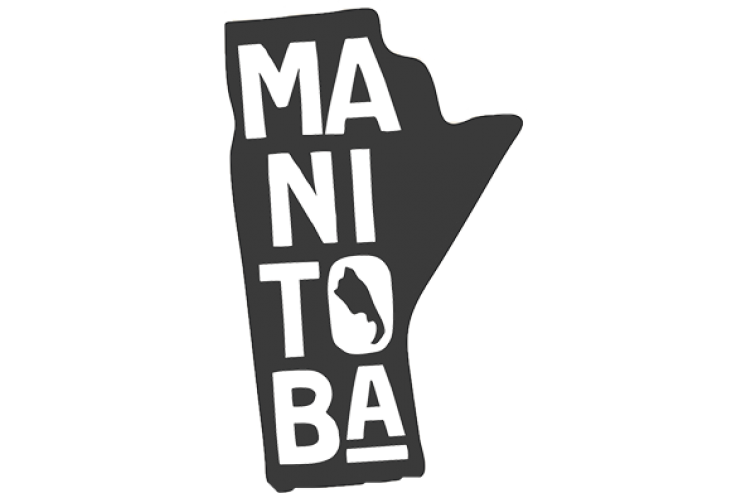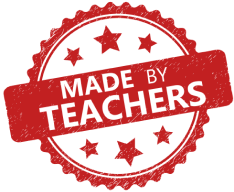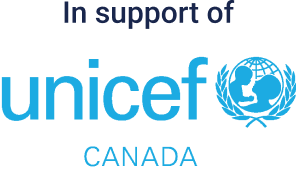Manitoba Grade 5

CLICK HERE FOR CURRICULUM CONNECTIONS, LESSONS AND SUPPORT RESOURCES.
Made by a Grade 5 teacher in Manitoba.
Kids Boost Immunity (KBI) provides educational content (lessons and support materials) developed by teachers and where needed, health experts, that is directly linked to curriculum and is available completely for free. Each lesson is paired with an online quiz that students can take on a laptop, tablet, or phone. Every time a student scores 80% or higher on a quiz, we donate life-saving vaccines to UNICEF Canada. To learn more about KBI, click here.
Click on the overarching curriculum themes below to see the curriculum outcomes that match KBI educational content. The full Grade 5 Manitoba Curriculum Connections document is here.
- English Language Arts 5
-
Curricular outcomes:
Practise within the field of English language arts as full participants.
The practice of using language as a system.
- In order for students to participate fully in learning, they need opportunities to investigate, understand, and apply the ways in which language works. Such opportunities would include exploring the patterns, relationships, and conventions that are important for communication and meaning making: decoding and coding, morphology, grammar,
- Develop flexible and versatile ways of thinking and using language to meet personal, social, and academic needs
All KBI leaning modules are applicable.
Most lessons have interactive educational games to support comprehension.
Lessons have a link to unit/lesson plans on each lesson title. These include adaptable literacy building activities such as vocabulary worksheets with phonetic structures, spelling exercises, matching definitions to vocabulary terms, sentence writing using vocabulary terms, and prefix/suffix exercises.
- In order for students to participate fully in learning, they need opportunities to investigate, understand, and apply the ways in which language works. Such opportunities would include exploring the patterns, relationships, and conventions that are important for communication and meaning making: decoding and coding, morphology, grammar,
- Critical Thinking
-
Curricular outcomes:
ELA
- 3.2.2 Identify Sources
- Answer inquiry or research questions using a variety of information sources (such as newspapers, series by the same name writer, scripts, diaries, elders, interviews, trips, oral traditions...).
- 3.2.3 Assess Sources
- Determine the usefulness of information for inquiry or research purpose and focus using pre-established criteria.
Science
- 5-0-2a Access information using a variety of sources. Examples: libraries, magazines, community resource people, outdoor experiences, videos, CD-ROMs, Internet… GLO: C6 (ELA Grad
- 5-0-1b Identify various methods for finding the answer to a specific question and, with guidance, select one to implement
Social Studies
- 5-S-105 Recognize bias and discrimination and propose solutions.
- 5-S-202 Distinguish between primary and secondary information sources for research.
- 5-S-304 Distinguish fact from opinion and interpretation
- 5-S-306 Assess the validity of information sources. Examples: purpose, context, authenticity, origin, objectivity, evidence, reliability...
Applicable KBI lessons:
1. Critical Thinking & Evaluating Information
- Literacy builder worksheet/answer guide
- Lesson worksheet/answers
- Video worksheet/answers
- Inquiry activities/answer guides
- Numeracy activity/answers
- 3.2.2 Identify Sources
- Beginnings
-
Curricular outcomes:
Social Studies- First Peoples
- 5-KI-004 Describe First Peoples’ stories of their origins, as well as current theories of migration to the North American continent.
- 5-VH-008 Value oral tradition as an important source of knowledge about First Peoples.
- 5-KL-017 Describe practices and beliefs that reflected First Peoples’ connections with the land and the natural environment.
- 5-KI-005 Describe characteristics of diverse First Peoples cultures before contact with Europeans.
- 5-KP-046 Compare types of leadership in diverse First Peoples communities. Examples: hereditary right, matriarchy, democracy...
- 5-KE-050 Describe various ways in which First Peoples communities interacted with each other. Examples: trade, cooperation, conflicts...
- 5-VP-014 Value diverse approaches to leadership.
ELA
- 2.2.1 Experience Various Texts
- Experience texts from a variety of forms and genres [such as historical fiction, myths, biographies...] and cultural traditions; explain preferences for particular types of oral, literary, and media texts.
- 2.3.2 Techniques and Elements
- Identify key elements [including plot, setting, and characterization] and techniques [such as colour, music, speed...] in oral, literary, and media texts, and explore their impact.
- 5.1.4 Celebrate Special Occasions
- Select and use language appropriate in tone and form to recognize and honour people and events.
- 5.2.3 Use Language to Show Respect
- Demonstrate sensitivity to appropriate language use when communicating orally.
Applicable KBI lessons:
1. Life on Turtle Island
- Literacy builder worksheet/answer guide
- Lesson worksheet/answers
- SCIENCE 5
-
Curricular outcomes:
Science 5
- 5-1-06 Identify the major components of the digestive system, and describe its role in the human body. Include: teeth, mouth, esophagus, stomach, and intestines break down food. GLO: D1, E2
- 5-1-07 Identify the major components of the skeletal, muscular, and nervous systems, and describe the role of each system in the human body. Include: the skeleton provides protection and support; muscles, tendons, and ligaments enable movement; brain, spinal cord, and nerves receive sensory input, process information, and send out signals. GLO: D1, E2
- 5-1-10 Identify the major components of the respiratory and circulatory systems, and describe the role of each system in the human body. Include: the nose, trachea, and lungs take in oxygen and expel carbon dioxide; the heart, blood vessels, and blood transport oxygen, nutrients, and waste products such as carbon dioxide. GLO: D1, E2
- 5-1-09 Identify components of the human body’s defenses against infections, and describe their role in defending the body against infection. Include: tears, skin, white blood cells. GLO: D1, E2
Applicable KBI lessons:
1. The Human Body - Circulatory System
- Literacy builder worksheet/answer guide
- Lesson worksheet/answers
- Video worksheet/answers
- Inquiry activities/answer guides
- Numeracy activity/answers
2. The Human Body - Respiratory System
- Literacy builder worksheet/answer guide
- Lesson worksheet/answers
- Video worksheet/answers
- Inquiry activities/answer guides
- Numeracy activity/answers
3. The Human Body - Digestive System
- Literacy builder worksheet/answer guide
- Lesson worksheet/answers
- Video worksheet/answers
- Inquiry activities/answer guides
- Numeracy activity/answers
- Hidden Worlds
-
Curricular outcomes:
Science - Maintaining a Healthy Body
- 5-1-09 Identify components of the human body’s defenses against infections, and describe their role in defending the body against infection
- 5-1-13 Identify and describe factors necessary to maintain a healthy body. Include: daily physical activity, a balanced diet, fluid replacement, adequate sleep, appropriate hygiene practices, regular check-ups. GLO: B3, C4, D1
- 5-1-15 Explain how human health may be affected by lifestyle choices and natural- and human-caused environmental factors. Include: smoking and poor air quality may cause respiratory disorders; unhealthy eating and physical inactivity may lead to diabetes or heart disease; prolonged exposure to the Sun can cause skin cancer. GLO: B3, B5, C4, D1
Applicable KBI lessons:
1. Germs, The Body's Defense System, & How Vaccines Help
- Lesson worksheet/answers
- Inquiry activities/answer guides
Curriculum-Related Themes Throughout the Year
- Reflecting on hardships and courage during WWII (November)
-
Applicable KBI lessons:
1. Remembrance Day / Veterans Day / Armistice Day
- Being kind and building leadership skills to help make a difference to others (December)
-
Applicable KBI lessons:
1. Winter Break - Spreading Kindness
- Literacy builder worksheet/answer guide
- Activity - Making A Difference
- Activity - Compare and Contrast special things at this time of year
- Activity - Recipe book
- Activity - Shape Poem
- Highlighting some key inspirational leaders during Black History Month as well as some experiences of refugees from different parts of the world (February)
-
Applicable KBI lessons:
1. Black History Month
2. Refugee Experiences
- Lesson worksheet/answers
- Inquiry activities
- Celebrating inspiring women in STEM (March)
-
Applicable KBI lessons:
1. International Women's Day - Celebrating Inspiring Women in STEM
- Literacy builder worksheets/answer guides
- Inquiry activities
- Caring for the environment (Earth Month in April)
-
Applicable KBI lessons:
1. Environment & Climate Change
- Literacy builder worksheet/answer guide
- Lesson worksheet/answers
- Video worksheet/answers
- Inquiry activities/answer guides
- Numeracy activity/answers
- Understanding communicable diseases and how they are spread, and learning about immunization. Suggested during flu season, immunization awareness week, and school vaccinations (if applicable)
-
Applicable KBI lessons:
1. Immunization Awareness Week
2. The Spread of Infectious Diseases
3. Scientific Curiosity and Vaccine Discoveries
- Indigenous history in Canada - pre-contact, contact, treaties, colonialism, and The Indian Act (June)
-
Applicable KBI lessons:
1. Life on Turtle Island
- Literacy builder worksheet/answer guide
- Lesson worksheet/answers
- Video worksheet/answer guide
2. Cooperation and Colonization
- Literacy builder worksheet/answer guide
- Lesson worksheet/answers




